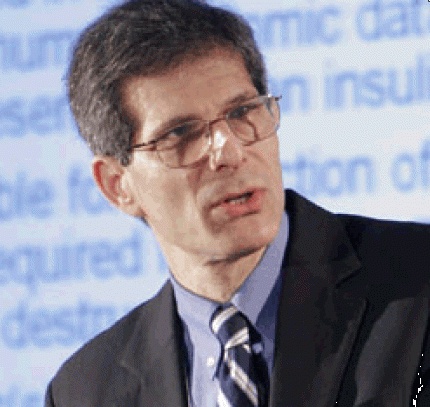
Kevan Herold, M.D., is Professor of Immunology and Internal Medicine, Endocrinology and Professor of Human and Translational Immunology at Yale University.
Dr. Kevan Herold graduated from Pennsylvania State University and Jefferson Medical College. He completed his residency at Temple University. His extensive career includes a Fellowship at the University of Chicago, Staff Scientist at Hagedeforn Laboratory in Denmark, and Scientific Director of the Juvenile Diabetes Research Foundation. In addition to several attending physician appointments specializing in diabetes, endocrinology, and metabolism, Dr. Herold’s faculty appointments include the University of Chicago, Albert Einstein College of Medicine, and Columbia University prior to coming to Yale University School of Medicine in 2006.
Dr. Herold's laboratory and clinical studies are focused on identifying the pathogenesis of type 1 diabetes and developing approaches to treat and prevent the disease in humans. His studies are based on preclinical studies of the mechanisms of beta cell destruction in animal models and studies that suggested that immunologic tolerance may be induced by treatment with monoclonal antibodies against T-cells, such as anti-CD3 antibody. Based on these studies and with the collaboration of Dr. Jeffrey Bluestone, Dr. Herold's lab carried out the initial clinical studies that showed that a short treatment of patients with new onset type 1 diabetes could attenuate the loss of insulin production during the first two years of the disease and perhaps for longer. They are studying the mechanisms whereby immune mediators can arrest autoimmunity with the hopes of targeting the key factors and molecules that are able to stop autoimmunity. Further studies are ongoing to build on this initial experience to develop additional immune therapeutic approaches that can improve response rates in patients and maintain immune remission for extended periods of time. Dr. Herold has experience in conducting clinical trials with mechanistic studies to test new therapies and hypotheses to understand the basis for success or failures of responses.
In addition, Dr. Herold is interested in integrating approaches that would improve beta cell function or even regenerate beta cells that have been destroyed by the immune mechanisms that lead to the disease. He characterized the fate of functional and anatomic beta cell mass in humans with and animal models of type 1 diabetes. He identified proliferation of beta cells as a result of the inflammatory process that causes the disease, which suggests that factors may be identified that can stimulate replication of these cells. Dr. Herold is testing whether beta cell regeneration can be achieved after induction of immune tolerance and are identifying the factors that are responsible for this occurrence. He is in a position to translate findings from these studies to the treatment of patients. Finally, Dr. Herold is interested in combining immunologic approaches with cellular therapies that are able to completely restore normal beta cell mass and function.
Dr. Herold is the recipient of numerous awards of recognition including from the Juvenile Diabetes Research Foundation, the AOA Honor Medical Society and the NIH with over 50 peer-reviewed publications as well as many chapters, reviews and editorials, serving on the editorial boards of the benchmark publications related to his fields of expertise. Currently, he is also the principal investigator on over ten grants.
“It is really an honor to be part of this group and to be working with outstanding colleagues. The coalition concept, that Bill Brehm has developed and supported, is paradigm shifting, as a way to conduct collaborative research and work towards achieving our goal of preventing and reversing Type 1 diabetes. The "glue" that holds us together – the collaborative and open discussions of our work is exciting and inspirational.”
